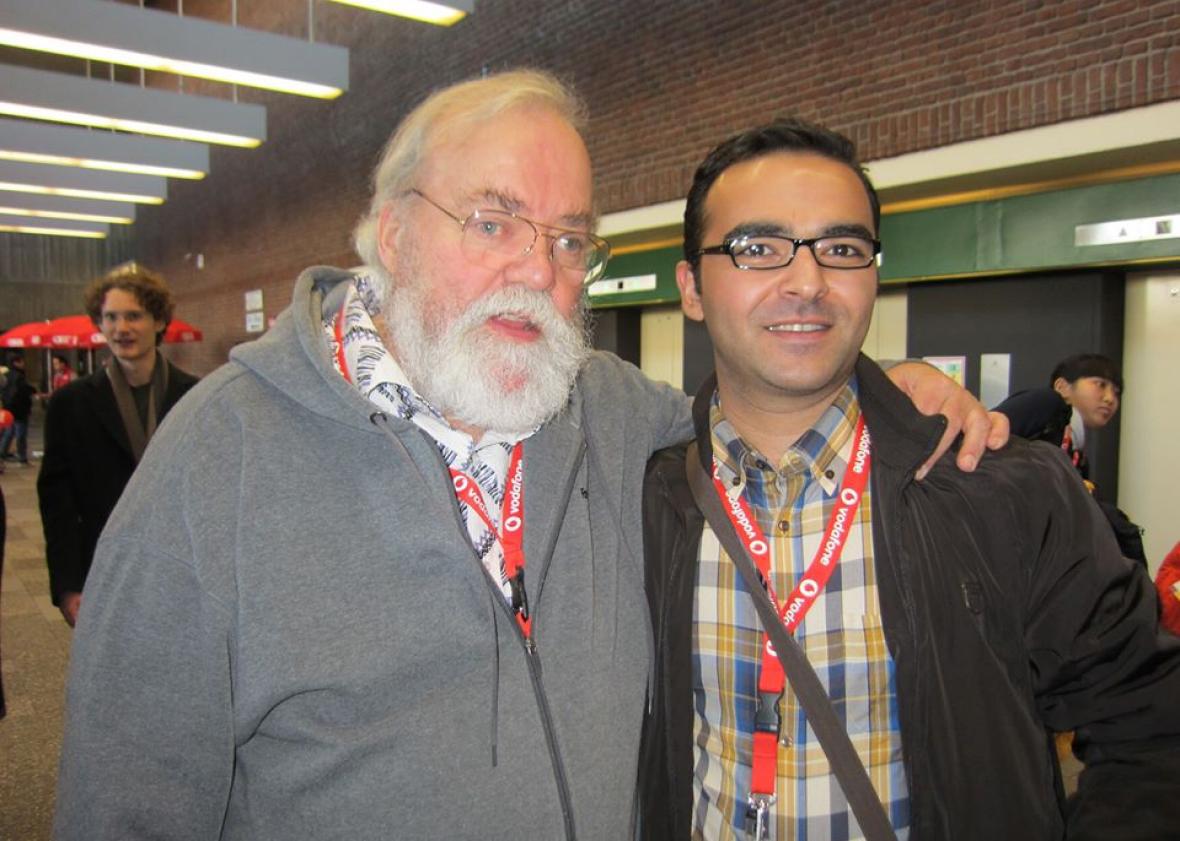Those who succeed in high school debate succeed in life. Just ask Tavis Smiley, Nate Silver, Hillary Clinton, a whole lot of Supreme Court justices, and Slate’s own Hanna Rosin, all to some extent forged in the flame of high school debate competitions. Because debate is such an under-recognized—but for so many students, influential—part of school, it seems fitting to use this space to commemorate the death Friday of Alfred “Tuna” Snider, 65, a professor at the University of Vermont who helped revolutionize high school and collegiate academic debate both in the United States and abroad.
“Tuna Snider was one of those people that got things done in debate,” wrote Sam Nelson, the director of debate at Cornell University, in an email. “He initiated, organized, and ran debate workshops everywhere on the planet. He saw opportunities for promoting free speech, critical thinking, and civil discourse and he took them.”
Snider had been interested in debate since he was a student at Brown University and ranked third in the country at the USA National Debate Tournament and second at the USA National Tournament of Champions, both in 1972. In the four subsequent decades, Snider devoted his life, according to one of his many websites, to “promoting debate and critical communication as an alternative to violence and conflict as well as a method for achieving real democracy and a true civil society.” (The slogan heading his University of Vermont professor bio page is “replacing weapons with words!”) That includes teaching and coaching debate teams; helping to start one of the first debate-focused email lists in the early 1990s; organizing debate camps here and conferences abroad; and writing or editing more than 50 books on debate.
Snider also served as coach of the USA National Team for the World Schools Debate Championship—a type of debate, incidentally, that he helped popularize in this country, which is team-based and far more improvisational than the one-on-one Lincoln-Douglas debates most Americans remember from high school. “Most other schools around the world don’t do the type of debate that [the United States does],” Chris Burk, the former coach of the University of Texas at Dallas debate team, said. “It’s kind of like how we play American football and no one else does—we’re really the only ones who do Lincoln-Douglas debate.”
But Snider’s most interesting legacy is the work he did bringing academic debate to far-flung countries all over the world. From the University of Vermont’s statement on his death:
Snider traveled to 45 countries on nearly every continent to advance the art of debate—in developing nations, under communist regimes and in war-torn territories—including Serbia, Iraq, Pallestine [sic], Botswana, Afghanistan and Chile. Since 1984, he served as director of the World Debate Institute.
“The debate world just lost a legend,” the national debate team of Morocco wrote today on Twitter.
“He would fly in and help set up tournaments all over the world,” said Burk. As director of the World Debate Institute, Snider went to Cameroon and Qatar and China to set up multiday debate programs, some in places that had never hosted debates before.
Just one example of Snider’s global reach: He helped Muhammad Ahmad Duhoki, director of public relations and academic debate lecturer at Duhok Polytechnic University in the Kurdistan region of Iraq, establish the Iraq Debate Academy and the Mesopotamia Debating Tournament in 2009. The weeklong program, the first and only of its kind in the Middle East, brought together 80 high school and university students with government officials from Kurdistan and other parts of Iraq representing, Duhoki said, not only Kurds but “most of the ethnic and religious groups in Iraq: Arabs, Armenians, Chaldeans, Yazidis, Assyrians.” The aim, Duhoki said, was to “promote the power of diversity and advocate for peace.”
Duhoki, who’d participated in debate tournaments while studying in South Korea, had wanted to bring academic debate to Iraq; Snider helped make that ambition a reality. “Tuna came to Iraq by himself with a crew and taught students the art of debate,” Duhoki said. “He was my major planner and supporter.” Until that time, academic debate as we currently understand it didn’t exist in the region. There’s not even a Kurdish word for “debate” in this sense, Duhoki told me; even now Kurds use the English word “debate.” Since the Iraq Debate Academy, debating has taken off in the region. Duhoki now teaches academic debate courses at three different colleges; he uses one of Snider’s many books on his syllabus. “Alfred Snider changed my life and the lives of many of our debaters,” Duhoki told me. “I will never forget him for his perseverance, loyalty, and hardworking he showed in Kurdistan.”
In his spare time Snider organized the Vermont Reggae Festival and served as faculty adviser on the college radio station, where—when he wasn’t traveling the world—he also hosted a Reggae Lunch show every Wednesday for 15 years.
